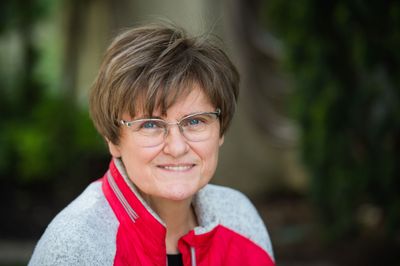Katalin Karikó
Our editors will review what you’ve submitted and determine whether to revise the article.
- Hungarian form:
- Karikó Katalin
- Born:
- January 17, 1955, Kisújszállás, Hungary (age 69)
- Awards And Honors:
- Nobel Prize (2023)
- On the Web:
- The Nobel Prize - Katalin Karikó (Apr. 09, 2024)
Katalin Karikó (born January 17, 1955, Kisújszállás, Hungary) Hungarian-born biochemist known for her pioneering research into RNA (ribonucleic acid) therapeutics, particularly the development of messenger RNA (mRNA) vaccines. Karikó’s investigation into the ability of mRNA nucleosides (structural subunits of nucleic acids) to trigger immune responses against specific pathogens (disease-causing agents) greatly facilitated the development of the first mRNA vaccines—a breakthrough that occurred in 2021, during the coronavirus disease 2019 (COVID-19) pandemic. For their discoveries relating to mRNA nucleosides, which opened the way to the development of effective COVID-19 mRNA vaccines, Karikó and her colleague American immunologist Drew Weissman were awarded the 2023 Nobel Prize in Physiology or Medicine.
Education and early career
Karikó grew up in a small village in Hungary, where from an early age she expressed an interest in nature and excelled academically in science. In 1978, after graduating with a doctoral degree from the University of Szeged, she accepted a position at the Biological Research Centre (BRC), Szeged. There she studied the antiviral activity of short segments of RNA and began her investigations of modified nucleosides, a type of synthetic mRNA in which specific nucleosides have been altered or replaced, typically with either synthetic nucleosides or naturally modified nucleosides.
In 1985, with no further funding to support her research at the BRC, Karikó moved to the United States, where she accepted a position as a postdoctoral researcher at Temple University in Philadelphia. Four years later she took a position at the University of Pennsylvania (Penn). There, with American cardiologist Elliot Barnathan, she demonstrated that mRNA, when inserted into cells, could be used to direct the production of new proteins. The breakthrough inspired her to pursue the study of mRNA-based gene therapy.
mRNA research
By the late 1990s, however, Karikó’s work on mRNA and gene therapy had stalled—again, for lack of funding. She considered leaving Penn for another research institution or pursuing different work entirely, but then she began collaborating at Penn with Weissman. Both researchers were interested in the possibility of using mRNA to stimulate the body to develop immunity against viral pathogens. In initial studies, they discovered that mRNA is highly immunogenic, provoking counterproductive immune responses in the body. However, when Karikó carried out experiments with a different type of RNA molecule, transfer RNA (tRNA), she did not observe the same immunogenic effects. That observation encouraged her and Weissman to experiment with modified nucleosides, which she had known about from her work at the BRC. The researchers went on to identify associations between specific modified mRNA nucleosides and reduced immunogenicity—a breakthrough that resulted in a technology known as non-immunogenic, nucleoside-modified RNA, which was developed and patented (2005) by Karikó and Weissman.
Karikó and Weissman subsequently started a company called RNARx, which aimed to commercialize non-immunogenic, nucleoside-modified RNA. The researchers eventually licensed the technology to two biotechnology companies, Moderna and BioNTech. In 2013 Karikó took a position as senior vice president at BioNTech, overseeing the company’s work on mRNA. In the following years, although both companies had multiple RNA therapeutics in clinical trials, none had yet proved successful. In 2021, however, a major breakthrough came during the COVID-19 pandemic, fueled by the urgency to develop a vaccine that could help prevent or reduce the severity of infection with SARS-CoV-2, the virus that causes COVID-19. Unlike traditional vaccine development, the generation of mRNA vaccines is relatively rapid, relying primarily on synthetic technologies, without any need for actual virus particles. Within months of obtaining the genetic code of SARS-CoV-2, scientists at Moderna and Pfizer-BioNTech had experimental mRNA vaccines ready for testing.
Awards
In addition to the Nobel Prize, Karikó’s work on RNA therapeutics was recognized with numerous honours, including the Lewis S. Rosenstiel Award for Distinguished Work in Basic Medical Research (2020), the Lasker-DeBakey Clinical Medical Research Award (2021), and the Louisa Gross Horwitz Prize (2021); all three awards were shared with Weissman.















